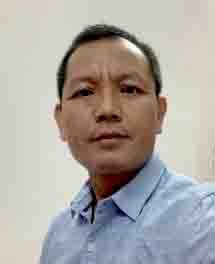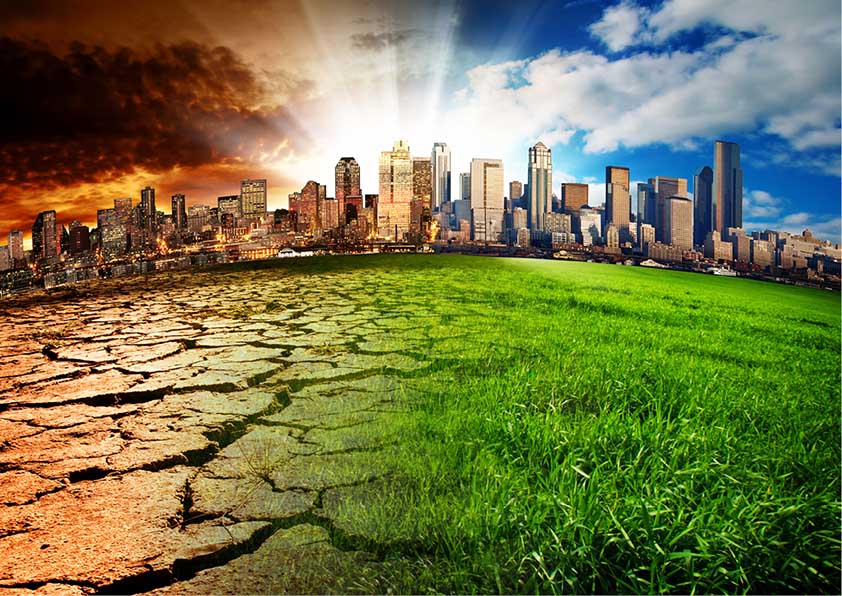The world observes 16 September as the International Day for the Preservation of the Ozone Layer. Let us consciously monitor our actions as humans. Short term goals of economic development can be a precursor for the depletion of the ozone layer, thereby causing untold misery to the living beings on the earth. It is time to break the myth that economic development is an accurate indicator of socio-political development. In a society that blindly accepts infrastructural growth as the only form of development, the holistic development model is difficult to capture its niche. Capitalism or the free economic market is the prime initiator of climate change. The introduction of liberalization, privatization, and globalization in the 1990s is taking tolls on the earth’s health.
What harms the ozone layer
Humans have a habitual orientation to live affluent life at any cost. A high carbon economy has led to economic growth. But this economic growth is a threat to humanity. Various acts and habits cause harm to the ozone layer and ultimately deteriorate human health. Green House Gases (GHGs) destroy the ozone layer in the atmosphere. Chlorofluorocarbons (CFCs) (also known as man-made gas), invented in the 1930s are used in refrigerants. Fire suppression systems for aircraft and aerosols also emit CFCs into the atmosphere. Halons, carbon tetrachloride, hydrofluorocarbons, unregulated rocket launches and nitrogenous compounds deplete the ozone layer. CFCs deplete the ozone layer, thereby paving the way for ultraviolet rays to reach the earth, causing sicknesses such as skin diseases, cancer, sunburns, cataract, rapid ageing and weak immune system. China, United States and India lead in total energy consumption and have the same rank in Carbon dioxide emissions from fuel combustion. Asia rises as the highest growing energy user in the world.
Impacts of climate change
Human behavioural patterns have led to drastic changes on the earth. Some of the effects of climate change are – extreme temperature (too hot or too cold), severe floods and droughts, insect outbreaks (locusts, ticks, mosquitoes, etc.), microbe outbreaks (like Covid-19, SARS), declining water resources, wildfire, reduced agricultural yields, frequent cyclones, volcanic eruptions, earthquakes, and many others. The earth’s temperature will likely increase to 1.5 degrees celsius by 2040 and 2 degrees celsius by the end of the 21st century (IPCC AR6).
Human behavioural change
Humans also can mitigate climate change. The use of alternatives other than CFCs is one such act. Reduction of carbon footprints – cycling, walking, less air travel, less vehicular use, plantation of trees as a carbon sink, inculcation of environmentally friendly behaviours, less use of industrial products, less use of paper, less use of plastics, minimalistic lifestyle patterns, etc., can reduce the warming of the earth. For example, the expansion of the Pune-Mumbai Expressway amounted to the cutting of thousands of trees. But the concerned authority has planted about 7000 trees on both sides of the six-lane expressway to compensate for the loss of trees in road construction. There are massive road expansion projects in the Northeast states of India, which is part of economic growth but are tree plantations for the millions of trees destroyed compensated reasonably? We cannot accept economic growth that is environmentally destructive to society.
The world economy grows richer but environmentally poorer. The effects of climate change are more likely to severely aggravate in poor countries due to a lack of resilient strategies. Climate change can be mitigated by climate action and climate financing to empower humans to learn environmentally friendly behaviour. It is utopian to rely on the government alone for environmental care. Those who own fridges, vehicles, planes, coolers are heavily responsible for planting more trees to compensate for the harmful gases released into the atmosphere. Each individual is equally liable to safeguard and promote a green lifestyle. There is a need for development but ‘sustainable development’, not the kind of private sector business tycoons who do not regard environmental deterioration. Trying to gain political mileage with economic development is another virus in our society.

The author is a PhD research scholar, Department of Sociology and Social Work, CHRIST (Deemed to be University), Bangalore, Karnataka, India. Email: paulhowkeep20@gmail.com











